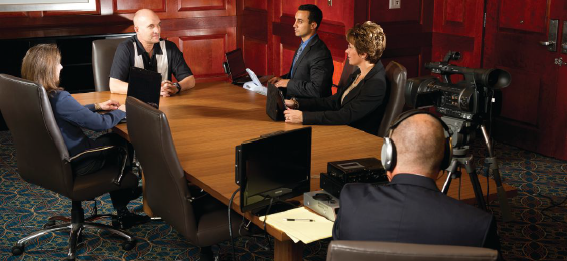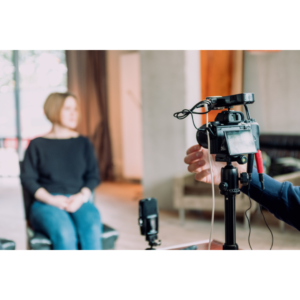Custom Legal Videography for Law Firms.
Custom Legal Videography for Law Firms.
Blog Article
The Function of Legal Videography in Depositions and Tests
Legal videography has emerged as a vital device in both depositions and trials, providing a multifaceted strategy to recording witness testimonies. As legal specialists increasingly identify its worth, it prompts a deeper assessment of exactly how these aesthetic records can influence juror understandings and test outcomes.
Importance of Lawful Videography
Legal videography plays a crucial function in the paperwork and discussion of depositions and tests. This specialized area incorporates technical skills with legal knowledge to develop a reliable document of proceedings that can considerably affect situation end results. The visual element of lawful videography improves the understanding of witness statement, allowing jurors and courts to observe not only the spoken words but also the attitude, emotions, and body language of the witnesses.

The significance of lawful videography extends beyond the courtroom; it additionally plays an important function in preserving evidence for future reference, whether for charms or more lawful action. Its integration into the lawful procedure is important for ensuring a reasonable and precise representation of the facts, eventually contributing to the quest of justice.

Refine of Legal Videography
While catching the nuances of depositions and tests, the process of legal videography entails a number of critical steps that make sure high-grade, accurate recordings. At first, a specialist lawful videographer prepares by reviewing the case materials and understanding the details demands of the deposition or test. This prep work consists of familiarizing themselves with the participants and the context, which helps in capturing significant information.
On the day of the recording, the videographer sets up the necessary equipment, which usually includes high-def video cameras, microphones, and correct lights. Making sure ideal angles and audio top quality is critical, as it straight impacts the performance of the recording. The videographer connects with lawyers and individuals to develop procedures, guaranteeing that everyone comprehends the recording process.
During the deposition or test, the videographer meticulously videotapes the proceedings, paying very close attention to both spoken and non-verbal signs. legal videography. This includes recording the temperament and responses of witnesses and attorneys. After the session ends, the videographer may edit the footage for clearness and conformity with legal requirements, creating an end product that accurately reflects the process for future recommendation and usage in lawful contexts
Advantages in Depositions
The unification of videography in depositions supplies many benefits that improve the total process of gathering evidence. One main benefit is the capability to record witness testaments with visual and acoustic fidelity, offering an extra exact depiction of the witness's attitude, tone, and body movement. This multidimensional strategy enables attorneys and courts to assess trustworthiness better than typical written records alone.
Furthermore, videographed depositions act as a powerful device for preserving testimony. Should a witness ended up being inaccessible for test, their taped deposition can be played in court, ensuring that their proof continues to be accessible and relevant. This aspect considerably minimizes the danger of shedding vital info that can influence situation outcomes.
In addition, making use of lawful videography advertises better prep work for attorneys. Assessing video footage permits legal teams to examine and improve their methods, recognizing strengths and weak points in their situations. This preparatory advantage can cause even more compelling presentations in court.
Lastly, videography boosts the general expertise of the deposition procedure, instilling self-confidence in customers relating to the thoroughness of their lawful representation. By leveraging modern technology, attorneys can substantially boost the efficiency of depositions.
Effect On Tests
In numerous trials, the assimilation of videography can dramatically affect the presentation of evidence and the jury's assumption. Legal videography records witness statements and essential proof in a dynamic format, permitting jurors to involve with the material on several levels. This visual part improves the narration element of a trial, supplying context and emotional vibration that typical text-based evidence may do not have.
Moreover, video recordings can function as effective devices for impeachment throughout interrogation. When inconsistencies develop between a witness's prior declarations and their court room statement, video clip proof supplies an objective reference that can persuade jurors' point of views. This immediacy and quality can reinforce the credibility of an event's narrative while simultaneously weakening opposing debates.
In addition, using videography can assist improve intricate information, making it much more accessible to jurors that may struggle to grasp complex information presented entirely through spoken testament. By his response integrating visuals with acoustic info, lawful videography can enhance retention and understanding, eventually influencing the court's decision-making procedure. The effect of videography in trials expands beyond mere visual appeals; it plays an important duty in forming the lawful landscape and end results.
Future Trends in Legal Videography
As we look towards the future of lawful videography, several arising patterns assure to reshape its duty within the court room. One considerable fad is the integration of artificial knowledge (AI) in video clip analysis and editing and enhancing - legal videography. Resources AI can simplify the procedure of determining essential minutes in tape-recorded depositions, permitting lawyers to quickly access pertinent content, consequently boosting efficiency in instance preparation
Furthermore, the rise of virtual fact (VIRTUAL REALITY) and enhanced fact (AR) innovations is expected to change just how jurors experience proof. By submersing jurors in a substitute setting, these technologies can provide an extra profound understanding of complicated situations, bring about even more educated considerations.

Furthermore, the boosting need for remote depositions, sped up by the COVID-19 pandemic, will likely proceed. Lawful videographers will require to adapt to brand-new software program and systems to make sure top quality recordings in digital setups.
Lastly, the growing focus on data safety and security will certainly demand stricter procedures for keeping and sharing video proof. As the lawful landscape progresses, lawful videographers should stay abreast of these fads to keep their importance and performance in the judicial process.

Verdict
In summary, lawful videography serves a crucial function in the judicial process, enhancing the stability of depositions and trials. By catching the nuances of witness statements, this tool not only maintains crucial proof yet additionally help in offering information properly to jurors. The relevance of aesthetic documentation in reviewing integrity and promoting interrogation Discover More can not be overstated. As innovation remains to develop, lawful videography is positioned to additional change its function within the lawful landscape.
Report this page